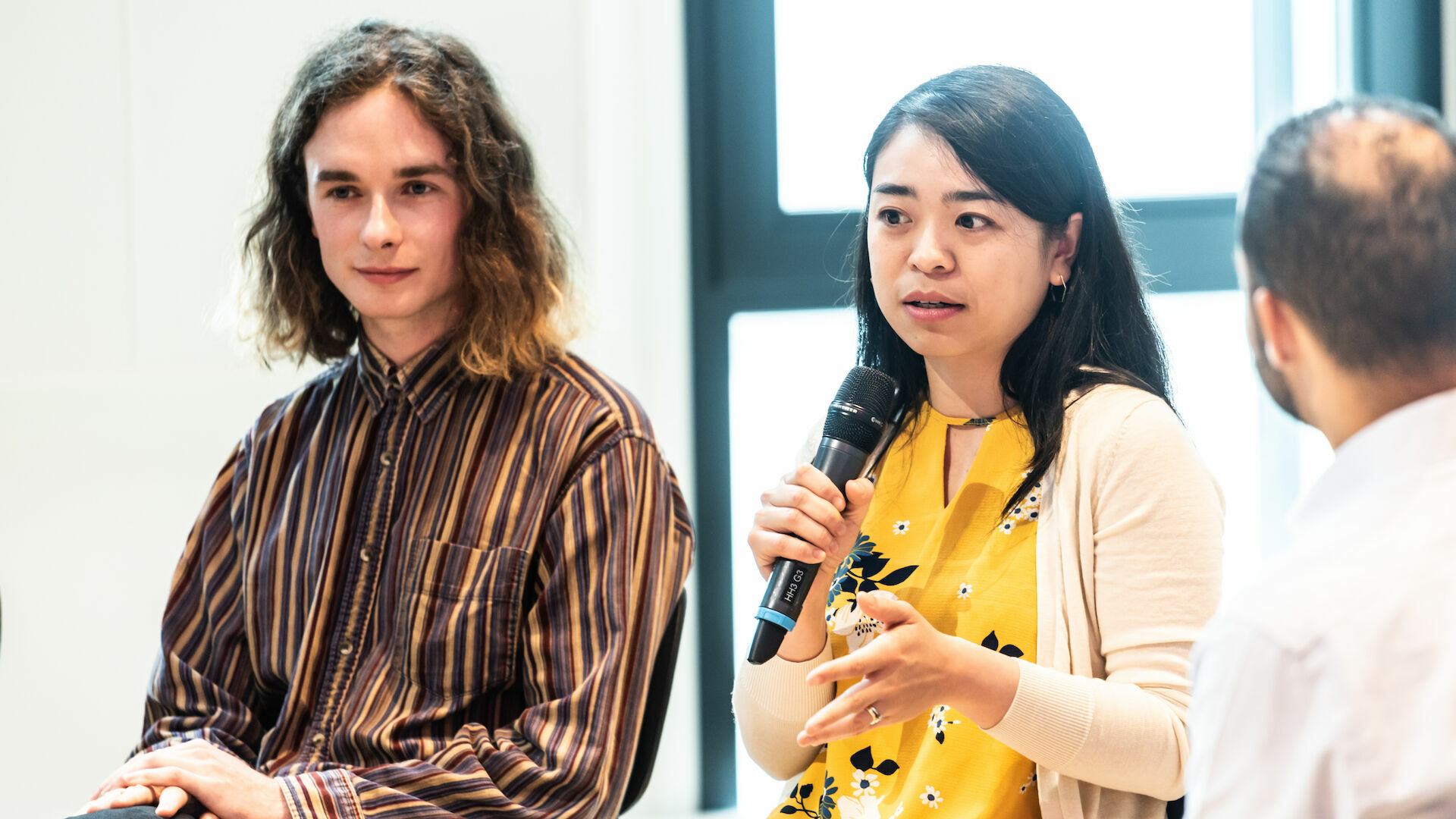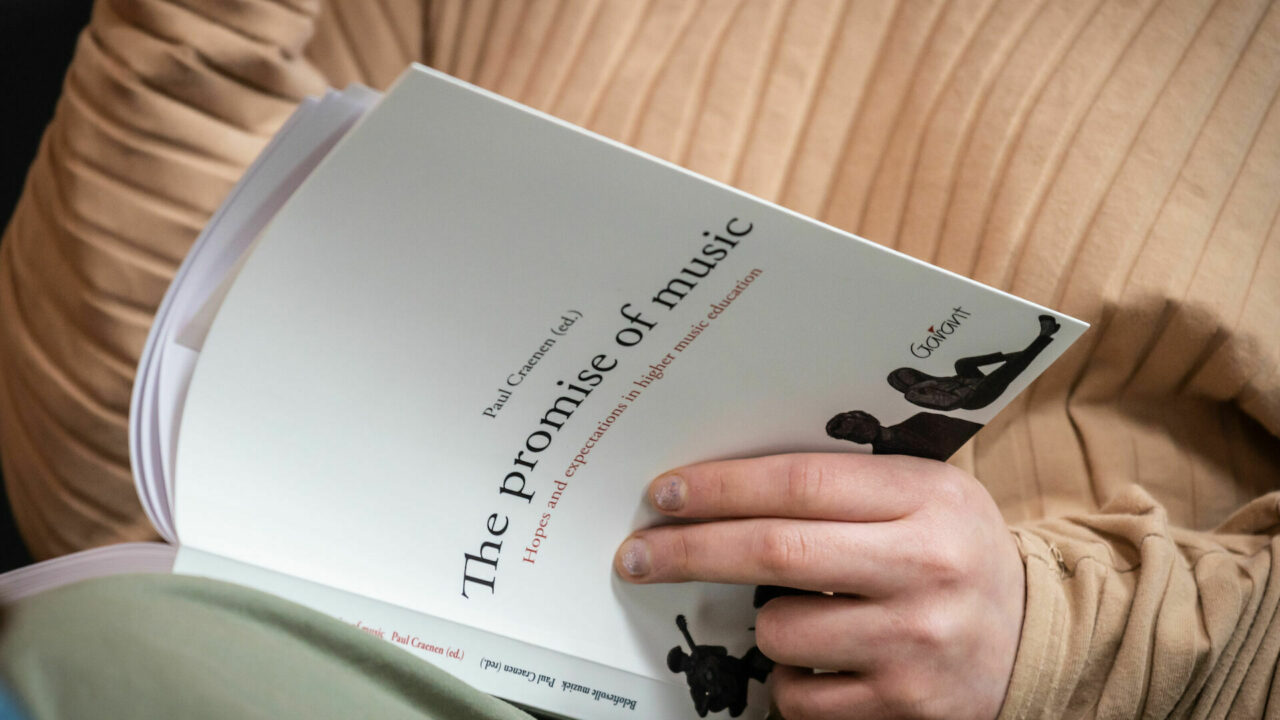Over the past year, the lectorate ‘Music, Education & Society’ has worked on a publication called 'The promise of music'. What does the future of music sound like? What are the hopes of the upcoming generation of professional musicians? The Promise of Music contains 18 articles by students and teachers from different departments of the Royal Conservatoire. We spoke to Lector Paul Craenen, who took initiative for the book, and Music Education student Petra Ruth Alexandry, who contributed with an article.
Paul: ‘With The promise of Music we wanted to offer a different perspective on the challenges of young musicians’ uncertain professional future. We all know that it has become more difficult to find a stable job in an orchestra, an ensemble or even in a school or a music organisation as a teacher. The answer often given to this precarity, is for musicians to become more flexible, to adapt to the changing environment. But I didn’t want this book to be defensive, I wanted it to propose something.’
Petra: ‘Paul and Heloisa Amaral, who coached our writing process, gave us a lot of freedom. They gave us guided questions such as “What do you think is promising in music?” to work with. Therefore all the articles in the book turned out to be very diverse.’
Paul: ‘I found it crucial to have the voices of master students next to the visions of teachers and staff in the book, especially because of the topic, because it is about what comes. I think in this respect you just can’t neglect the voices of the upcoming generation. The group of contributing students shows how international and diverse the community is. The book aims to tap into that rich resource. Students come from all over the world, and they all come from different backgrounds, they bring something unique with them. What can we learn from that? How can they also learn from each other together?’

Petra: 'In my article, I decided to go as personal as possible. The country and culture I come from shaped a big part of me, therefore I decided to mention its influence on my music career. In choosing the writing format, I thought doing an interview with myself would be an interesting take. I have been writing a diary since elementary school and I have always written it from a third-person perspective. Therefore the choice to write this article in the form of an interview with myself felt very natural to me.’
Paul: ‘I have noticed that the personal identity of the musician is becoming an element of their profiling, of what it means for them to be an artist. This is a new area of interest that resonates strongly with many of the students' contributions. Another recurring element is that they question what actually is or can be the value of music in contemporary society and why we don't reflect on it more. This is interesting because indeed such discussions are not yet a natural part of the music curriculum. What should conservatories support and develop if the goal is no longer just to become the best possible performer or composer? We seem to be witnessing the emergence of new narratives here, and I think that is a promising aspect.’
Petra: ‘During my study, especially at the beginning, I sometimes felt like a failure. “I am not a prodigy,” “I am not an extremely talented performer,” and “I did not win a competition." Those thoughts prevented me to aspire for a promising future in music. However, I spent some time contemplating the real meaning of ‘promising’. I took an example from the world of IT. It is really clear that not everybody is becoming Steve Jobs, but they can still be successful. If I am not becoming Yuja Wang, that does not mean that I cannot be a musician. This is a switch I made in my head. There are a lot of opportunities and promises in music outside of being a performer.
When I was reading the book myself, I became very aware of all the different perspectives of my colleagues and the teachers. Because of this, I also felt for myself that I haven’t explored enough yet. I think the next step for me would be to really determine a clear step in my career and try other things outside teaching and performing. Perhaps developing a teaching app? Digitalized teaching strategies? Those are things I still want to look into more deeply.’
Paul: 'With the lectorate, we will continue to research what lives amongst students and teachers, in relation to the changing culture and the world around us. I strongly believe that music as a medium possesses an openness to new situations and environments. It has nomadic potential, as I call it in the book. We find this in the way music can be heard and experienced in different ways, and in the ways it can change and transform simply by being shared and recreated by other people and in new environments.’
You can read the preface and introduction to the book here. You can order the book on the website of the publisher, Garant.

